| | | | | | | Presented By General Motors | | | | Axios What's Next | | By Jennifer A. Kingson, Joann Muller and Erica Pandey ·Aug 25, 2021 | | The CEO of United Airlines shared some straight talk with Joann Muller — check it out. - Also: Please send us pictures for the What's Next photo competition! Shoot us a line or two about what your picture says about our ever-evolving lifestyles: whatsnext@axios.com.
- Today's winners are at the bottom.
Today's Smart Brevity count: 1,050 words ... 4 minutes. | | | | | | 1 big thing: United CEO: I'm tired of employees dying | 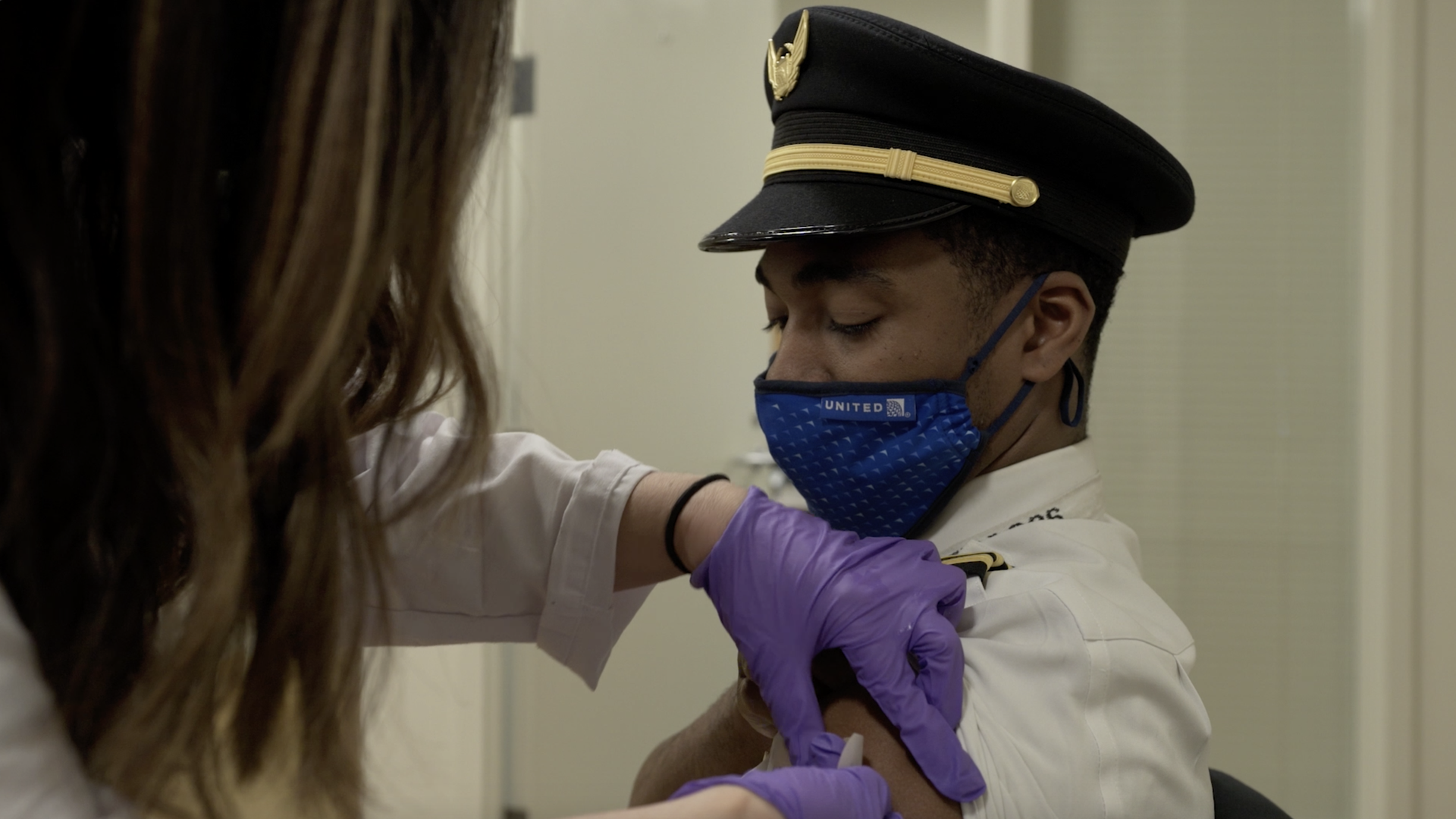 | | | A United Airlines pilot receives the COVID-19 vaccination. Photo: United Airlines | | | | United Airlines CEO Scott Kirby tells Axios that his early decision to mandate COVID-19 vaccines for all of his nearly 67,000 U.S. workers was an easy one: He's already seen too many employees die, Joann Muller writes. What he's saying: "For me, the fact that people are 300 times more likely to die if they're unvaccinated is all I need to know," Kirby said. "It's about saving lives." Why it matters: United so far is the only major airline to require vaccines for its workers (although Delta requires it for new hires). - But Kirby expects many more corporations will do so following the Food and Drug Administration's decision this week to fully approve the Pfizer-BioNTech coronavirus shots for people 16 and older.
- "It eliminates one of the last substantive hurdles for vaccine hesitancy," he tells Axios. "And because of that, it makes it easier for leaders to require vaccines."
- "The more companies that do it, the harder it will be to not require it."
Kirby became emotional when he told Axios about the dozens of United employees who had died from COVID — "and 100% of them are unvaccinated." - "Yesterday, we had an employee die. He was only 53, and he spent eight days in the emergency room, waiting for his spot in the ICU in Houston, because it's full of COVID patients."
- "But he died before he ever got there. I'm tired of that happening. It's tragic and it's unnecessary. And that's why we mandated the vaccine."
What they're doing: United announced the policy on Aug. 6 and says it has been helping employees find and schedule shots in their area. - It's also hosting on-site clinics, where more than 10,000 United employees, friends and family members have gotten vaccinated.
- The company is hosting information sessions with medical experts to address vaccine hesitancy.
- Full- and part-time employees who upload their CDC vaccination card to a company database before Sept. 20 will receive an extra day's pay.
What to watch: It will be up to the Federal Aviation Administration to decide whether passengers should be vaccinated before traveling, Kirby said. - If most employers require it, the population will increasingly be vaccinated anyway, he noted.
The bottom line: Demand for air travel has slowed lately — upending the industry's nascent recovery — amid a surge in COVID infections. - Widespread vaccinations are the only way to ensure a permanent recovery, Kirby said.
- "We usually don't have a silver bullet. But this time we have a silver bullet, and it's the vaccine."
Share this story |     | | | | | | 2. WeWork expands hour-at-a-time office bookings | 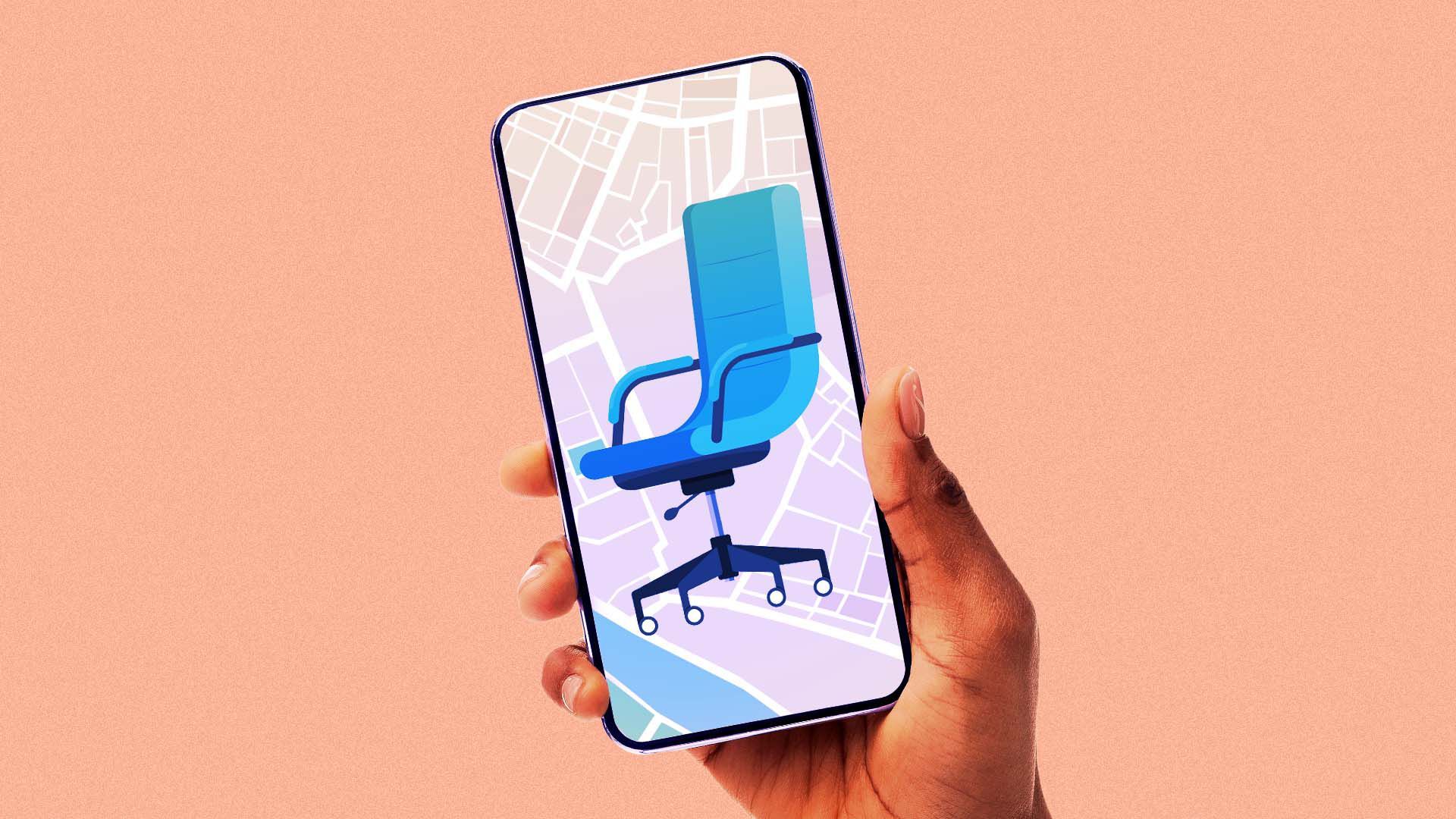 | | | Illustration: Sarah Grillo/Axios | | | | WeWork's OnDemand product that lets anyone book office space for an hour at a time is going international, expanding from the U.S. to the United Kingdom, Ireland, Singapore and Australia, Erica Pandey writes. The big picture: The pandemic has given rise to a remote and hybrid work revolution, but that doesn't always mean working from home. WeWork is betting that "third workplaces" — like its offices around the world — will become hotspots for teleworkers. The backdrop: The rise of telework initially seemed disastrous for WeWork, which has invested piles of cash into perk-laden office spaces. - But the firm is attempting to future-proof by pivoting from big, long leases for entire companies to an "Uber-for-office-space" model designed for individuals.
- "Third workplaces" are becoming increasingly important as the Delta variant continues to disrupt work and school, and corporate burnout intensifies.
- Employees need quiet workspaces where they can escape family members or roommates and the pressures of home. Many companies have already started reimbursing remote employees who book space at local WeWorks.
Among the cities where OnDemand is opening: London; Manchester, England; Dublin; Singapore; and Melbourne, Sydney and Perth, Australia. Share this story |     | | | | | | 3. We're all going to pay for the unvaccinated | 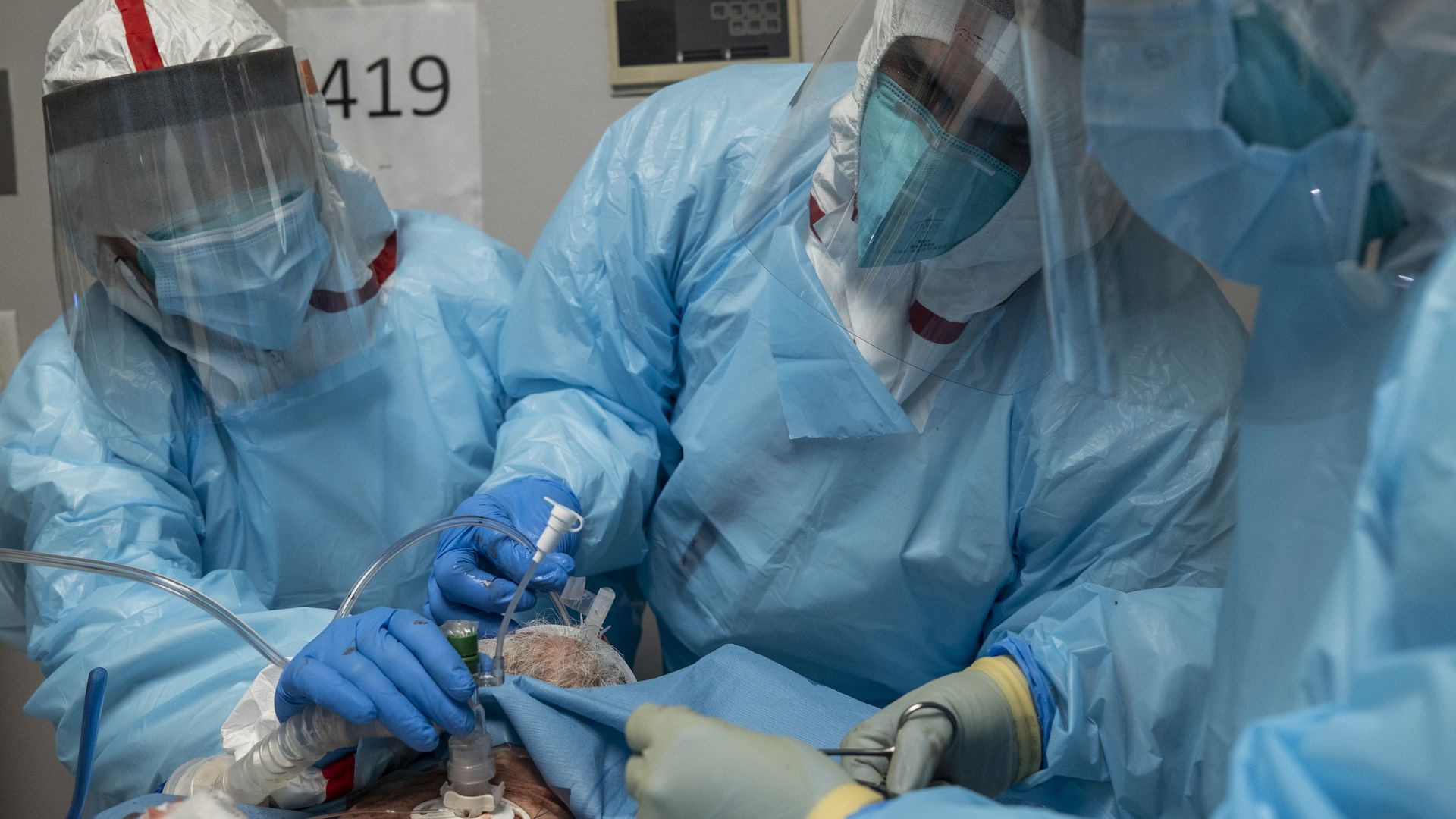 | | | Medics work to install a ventilator circuit on a patient's throat in a COVID-19 intensive care unit in Houston. Photo: Go Nakamura/Getty Images | | | | The spike in hospitalizations of unvaccinated adults — which are almost all preventable — cost the U.S. health system more than $2 billion in June and July, Axios' Caitlin Owens writes per a KFF analysis. Why it matters: Those costs are ultimately shouldered by all of us, not just those who remain unvaccinated and then get severely ill. By the numbers: A coronavirus hospitalization costs, on average, about $20,000. - Using CDC data, KFF estimated that there were about 37,000 preventable coronavirus hospitalizations among unvaccinated adults in June and another 76,000 in July.
Between the lines: Someone has to pay for these hospitalizations. Although COVID-19 patients themselves may be on the hook for at least part of the bill, a large chunk of the tab will fall on either private or public insurers. - And health insurance isn't free — we all pay for it either through our premiums or our taxpayer dollars.
- "In addition to preventable direct monetary costs for treatment of unvaccinated people, re-opening of schools and economic recovery also suffers as increasing COVID-19 cases continue to put Americans at risk of avoidable severe illness and even death," the analysis writes.
The bottom line: We're all paying for the unvaccinated, and the big question is how large we'll let the bill become. |     | | | | | | A message from General Motors | | Driving the future of America | | |  | | | | From designing the revolutionary new Ultium Platform to the first electric vehicles it will power, General Motors is investing billions not just in EVs and AVs, but in American manufacturing itself. Learn more. | | | | | | 4. Three words you shouldn't say in job interviews | 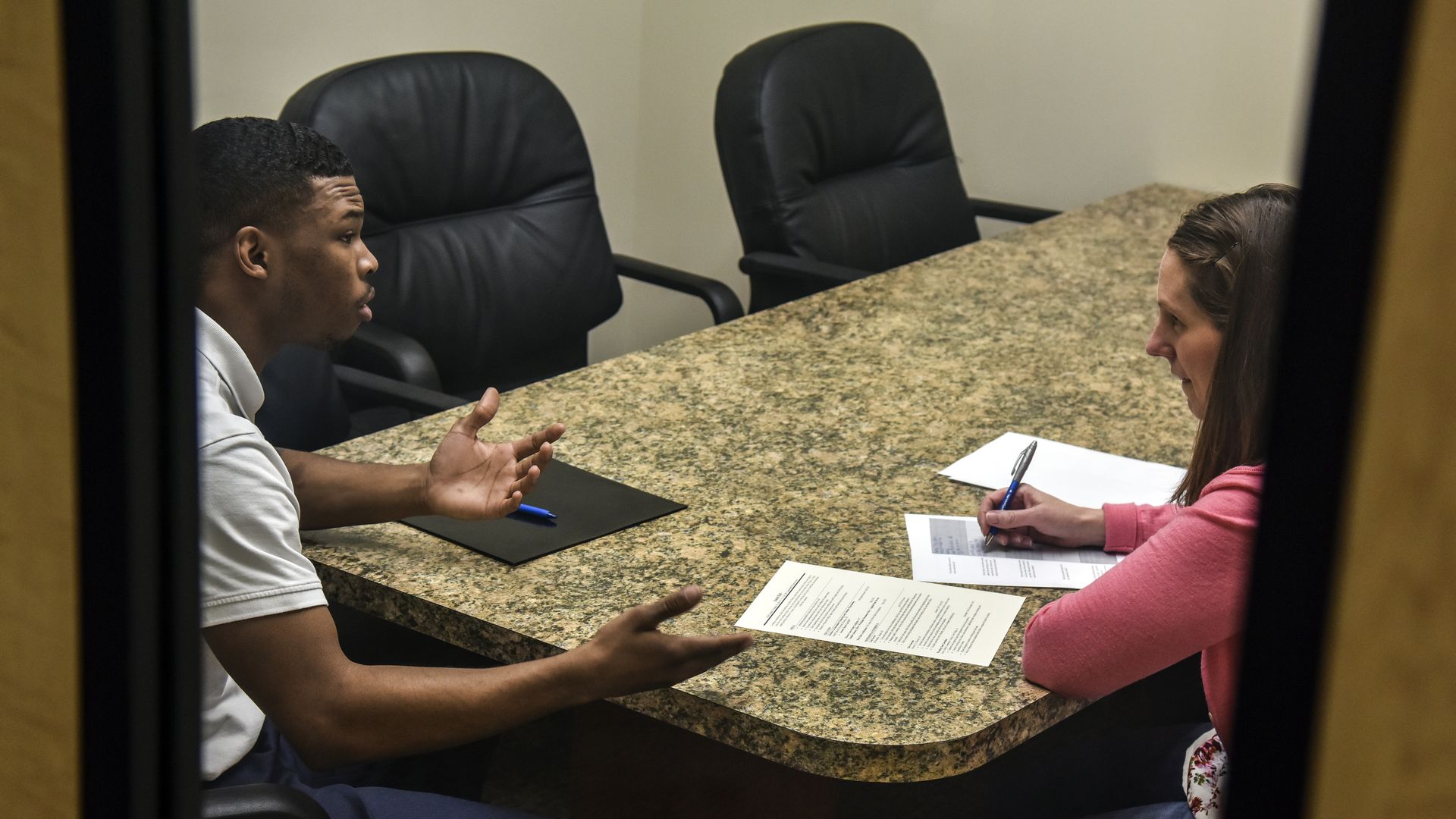 | | | Photo: Jahi Chikwendiu/The Washington Post via Getty Images | | | | "Motivated," "innovative" and "trustworthy" are three overused buzzwords that make hiring managers' eyes glaze over, according to a survey of 1,000 of them by the H.R. software maker Zenefits, Jennifer A. Kingson writes. Why it matters: A lot of people are looking for jobs — or to change jobs — and many of us (ahem) have rusty interview skills. Details: Zenefits found that "the most common mistakes during video interviews include criticizing previous employers, consuming takeaway coffees and not explaining employment gaps." - 10% of hiring managers "reported their candidate did not show up on time to their Zoom interview or had trouble with the technology."
|     | | | | | | Reader photos |  | | | The Fairmont Le Château Frontenac hotel in Quebec City, Canada. Photo: Jenny Ellis | | | | What's Next: Gorgeous vacation spots, woefully understaffed Jenny Ellis of Falmouth, Maine, writes: "The Canadian border is now open to U.S. travelers (who are fully vaccinated), but, like everywhere, labor shortages are making it hard for businesses to capitalize on the boost in tourism. "Hotel managers are stripping beds, chefs are parking cars, and it's only going to get worse as the last of the college-aged workers head back to school. Still, it's lovely here in Quebec City!" Screenshot: Dana McCreesh What's Next: The youngs don't understand the technology of the olds. Dana McCreesh writes: "Is this really a picture of What's Next in work? No. "It's the confusion of the younger generation when confronted with old technology. "Nauti refers to Nauti Dolphin Pizzeria." |     | | | | | | A message from General Motors | | Driving the future of America | | |  | | | | From designing the revolutionary new Ultium Platform to the first electric vehicles it will power, General Motors is investing billions not just in EVs and AVs, but in American manufacturing itself. Learn more. | | | | Any omissions, corrections, observations, or spontaneous outbursts of appreciation? Send 'em to whatsnext@axios.com. If this email was forwarded to you, subscribe here. |  | | It'll help you deliver employee communications more effectively. | | | | | | Axios thanks our partners for supporting our newsletters. If you're interested in advertising, learn more here.
Sponsorship has no influence on editorial content. Axios, 3100 Clarendon Blvd, Suite 1300, Arlington VA 22201 | | | You received this email because you signed up for newsletters from Axios.
Change your preferences or unsubscribe here. | | | Was this email forwarded to you?
Sign up now to get Axios in your inbox. | | | | Follow Axios on social media:    | | | | | |








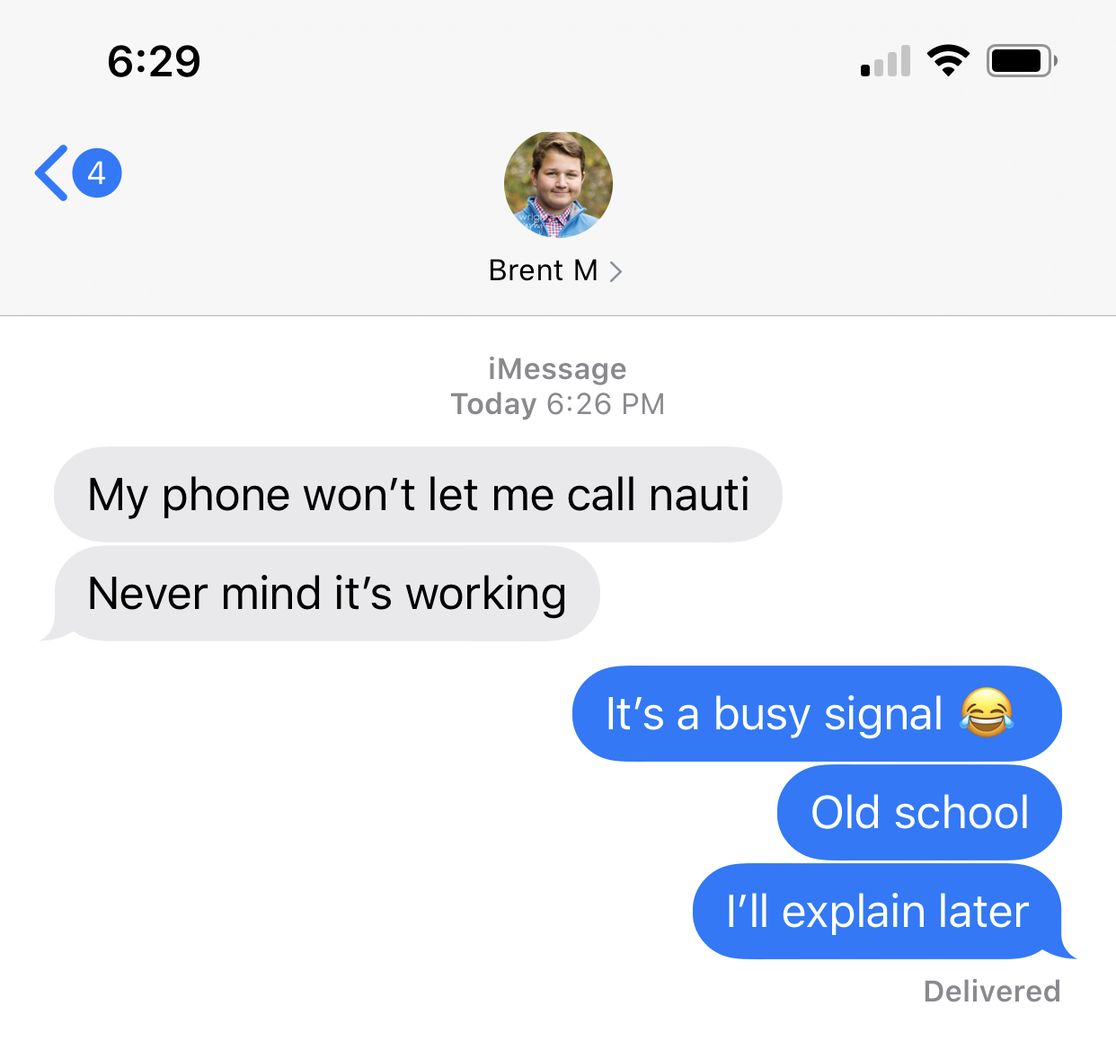

No comments:
Post a Comment